A guide to drinking tea in Pregnancy
Did you know that the first 15 minutes you spend after waking up has a profound effect on the rest of your day? Well, there’s a fun fact for you. And, it’s scientifically proven as well, so it’s important that you work out a perfect regime to carry out every morning to improve the quality of your life.
That being said, if you ask others what kick starts their mornings, what allows them to gear up for daily challenges and what brings them alive, you can sum all of them into one element; TEA.
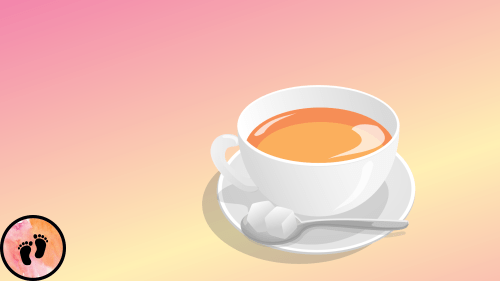 Drinking tea in Pregnancy
Drinking tea in PregnancyIt has become a ritual that has been ingrained and followed our entire life. I mean, who doesn’t love to sit on their favourite chair, have a sip of tea and just contemplate on life.
For most people, tea time is a zone of comfort. It lifts their mood plus with the likes of many health benefits it provides, you are simply glued to it.
But when you are pregnant there are a lot of things going in and around you. You would wish for one of these mornings, but it ain’t that simple.
Is it safe to drink tea during pregnancy?
Morning tea gives you zest to stride forward and seizes your desires. With pregnancy, you are bound to restrictions on what to and what not to. Same applies for drinking teas too.
Expecting women should be kept away from beverages with high caffeine content, as they tend to have a negative impact on them.
It’s not like you should avoid tea for nine months of pregnancy completely, but you have to make sure to check the label to identify the caffeine amount and consult with your doctor before consumption.
It has a lot of benefits like it helps relieving morning sickness, swelling of legs, cramps etc. Its consumption depends upon the type of tea and the ingredients it contains.
Herbal and Non-herbal teas
Before moving on to detailed information, we need to understand the basic difference between herbal and non-herbal teas.
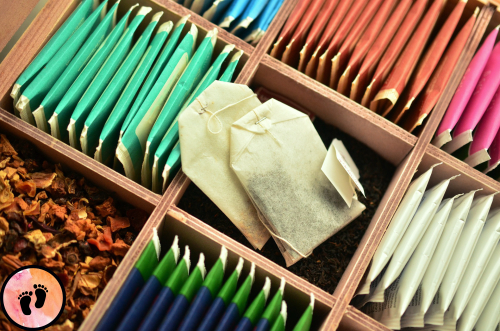 There are more than 3000 varieties of tea
There are more than 3000 varieties of teaHerbal tea is made from the roots, berries, barks, flowers, seeds, and leaves of a variety of plants other than tea plants, so they are caffeine free. They include peppermint, chamomile, cinnamon etc.
And, non-herbal tea is mainly made up of the leaves of tea plants. Some examples are green tea, black tea, oolong tea etc.
Herbal tea does not contain caffeine and is mostly used as a decoction and for medicinal purpose. Non-herbal tea is loaded with caffeine but at the same time is filled with anti-oxidants. So as long as you limit the consumption to below 200 mg caffeine per day, it is still safe to consume.
Teas safe to consume
1. Ginger tea
(Should be taken only during the first half of pregnancy)
It is pretty common to catch a cold for a pregnant woman, especially during the first trimester because the immune system is weakened due to the extra carriage in the womb.
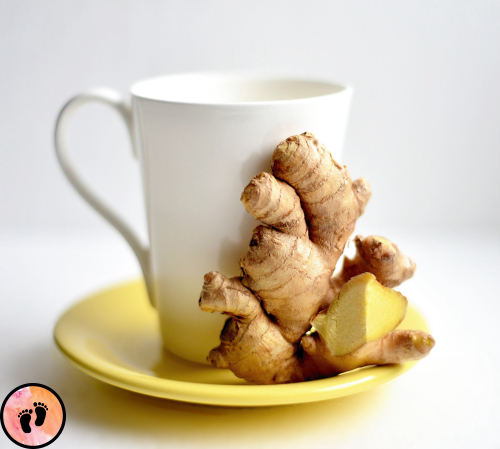 Ginger Tea helps in cold, cough and morning sickness
Ginger Tea helps in cold, cough and morning sicknessGinger tea helps in
- Fighting against cold, cough and other respiratory problems.
- Relieves you from morning sickness and nausea, which troubles your food intake, thus indirectly affecting your baby.
- Other benefits include relief from severe heartburns and aiding the digestion.
2. Nettle tea
First thing you have to remember is that you buy Nettle leaf tea and not seeds. Nettle tea has numerous benefits associated with it. It is packed with some important nutrient with a high concentration of iron, calcium and magnesium.
Some of the major benefits include:
- Relieving from swelling feet, abdominal cramps
- Reducing chances of preeclampsia.
- It combats against the sleeplessness, fatigue and they invigorate you and make you full of life
- It also helps in breast milk production.
3. Rooibos tea
The benefits of this tea are enormous. It is a caffeine-free drink with a small amount of tannins. It is packed with calcium and antioxidants. It counteracts the acid reflux and helps to improve digestion.
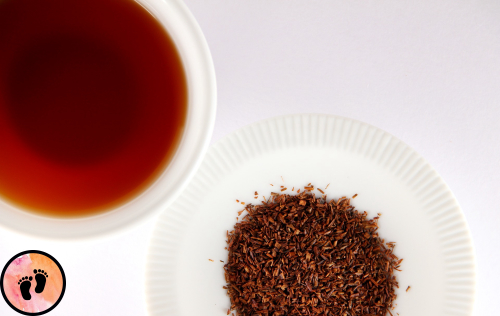 Rooibos tea is indigenous to South Africa
Rooibos tea is indigenous to South Africa One can have up to two-three cups of rooibos a day. It is extra beneficial if you mix the tea with milk, it tastes good as well.
3. Raspberry leaf tea
(Should not be taken during the first trimester)
It is considered as one of the most important tea. It should be taken regularly during the third trimester.
- Taking raspberry tea regularly decreases your chances of C-section
- It also helps to combat gum sensitivity which the pregnant women are more prone due to an increased progesterone level
- It is loaded with iron, calcium and other minerals and also prevents post-partum hemorrhage.

4. Peppermint tea
It has a calming effect on the mind and it soothes airways, thus dealing with breathlessness during early and late pregnancy periods.
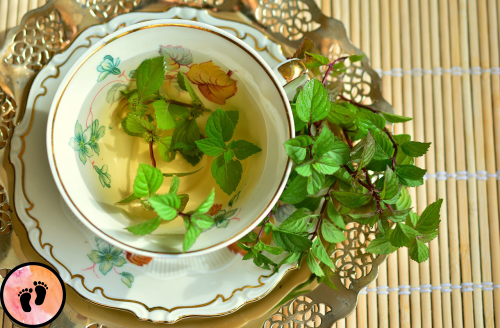 Peppermint Tea helps in Nausea
Peppermint Tea helps in NauseaIt aids in digestion and the smell of peppermint can be a good cure to nausea as well. It relaxes your muscle and provides you with better sleep.
Teas to avoid
Certain types of tea contain high caffeine or other ingredients which lead to complications in pregnancy. So it’s better to avoid these.
1. Green tea
A cup of pure green tea contains 30 mg to 50 mg of caffeine per serving. You need to avoid drinking green tea as it interfere with the absorption of folic acid, which is essential for baby brain development.
If you really addictive to green tea, limit the consumption to 1-2 cup per day on empty stomach for other health benefits.

2. Poppy tea
Presence of large amounts of codeine causes breathing problems for the baby in the third trimester. Hence, you need to avoid this one completely.
3. Aloe tea
It contains about 65 mg per serving of caffeine. Is known to induce labor and contractions.
4. Hibiscus tea
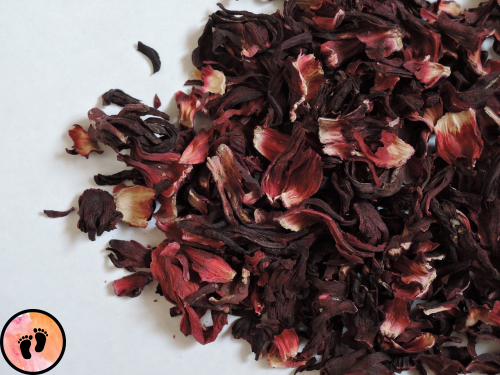 Certain teas are big no in pregnancy like Hibiscus tea
Certain teas are big no in pregnancy like Hibiscus teaIt is reported to cause fluctuations in hormone levels in the first trimester. It can also cause emmenagogue effects, which results in bleeding, cramping or early labor.
5. Parsley tea
It increases the risk of miscarriage and affects the baby's development.
6. Senna Leaves Tea
Should be avoided as it is a natural laxative.
Limit Consumption
Some Other Non-herbal Teas which are widely consumed, need a restriction on the consumption limit and a go-ahead from the doctor.
1. Black tea
It contains caffeine content of 60-90 mg per serving.
2. Oolong tea
The caffeine content in this tea ranges from 50-75 mg per serving.
3. White tea
It contains caffeine content of 30-55 mg per serving.
Side effects of Drinking unsafe teas
Teas high in caffeine, when consumed, can cause complication during later stages of pregnancy and other side effects which can be severe as well. Some of them are mentioned below:
- Seizures
- High blood pressure
- Brittle bones
- Anxiety disorders
How much tea is safe to drink?
Tea, in general, is a stress-relieving drink which pumps blood from the lower part of your body to the upper parts. As more blood is directed towards brain, we feel more relaxed. This paves the path for new ideas and fresh thoughts.
It’s been reported in a study that during pregnancy, it is safe to consume drinks up to 200mg of caffeine a day. As caffeine gets absorbed rapidly and crosses the placenta, after 200mg of caffeine, intervillous blood flow in the placenta gets reduced by 25%. As long as you keep the check, it is safe to consume with limit rather than avoid it completely.
Recent Posts
Homemade Pregnancy Test
How to Prevent Pregnancy Stretch Marks
Is It Safe to Eat Ice Cream During Pregnancy
Breast Pain in Pregnancy
7 Tips to getting pregnant faster
COMMON INFECTIONS DURING PREGNANCY
Pregnancy Diet: Apples during Pregnancy
Advertisement
Duis leo. Donec orci lectus, aliquam ut, faucibus non
Join Our Community of Expecting Parents Today!
Subscribe to get updated on latest and relevant pregnancy-related details